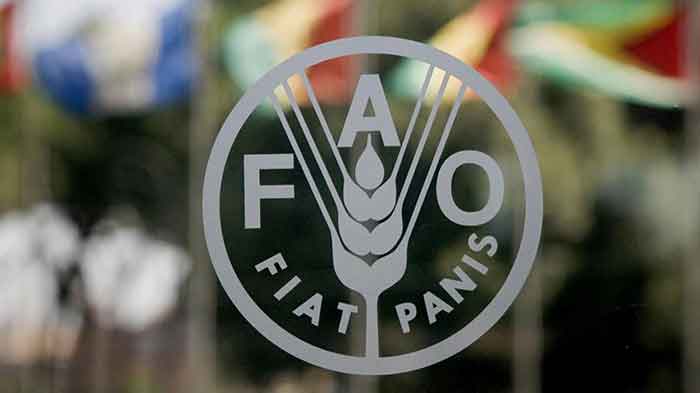
Just like clockwork, the UN’s Food and Agriculture Organization (FAO) has set off another ‘heartfelt’ warning to the rest of the world, saying that, if conditions in the West African Sahel region continues to deteriorate, areas in four concerned countries could slip into famine, this was stated in the FAO’s Early Warning Analysis of Food Insecurity Hotspots and includes; Northeastern Nigeria, Burkina Faso, South Sudan and Yemen across the Red Sea. The consistent theme of mentioning conflict and economic decline as main factors for looming crisis -famine in this case- only serves to draw focus away from the deeper issues that directly or indirectly sustain conditions of strife. Readers and observers are never made to understand that these regions have for years, been theatres of neocolonial military operations that mask as part of the so-far-never-ending war on terror, which is a cynical term in that, one has to ask how a war is waged against a tactic.
The report is stated as a call-to-action which is practically a dog-whistle for NGOs to get excited about, and in typical inert fashion, the main drive is to get access to the populations to ensure that they have food and the means to produce food. This also dodges the reality that most countries experiencing food insecurity are saddled with odious debt and have adopted regressive economic programs prescribed by IMF/World Bank-type organizations. Although the four countries mentioned above are the focal regions, the early warning report draws attention to; Venezuela, Haiti, Afghanistan, Syria, Lebanon, Sudan, Ethiopia, Somalia, Mozambique, Sierra Leone, Mali, Niger, Cameroon, Central African Republic, Democratic Republic of Congo, Zimbabwe. All are countries of the global south, all are countries that have been economically ravaged by transnational corporations, all are countries that have had any attempt at self-reliance sabotaged by imperial machinations for decades on-end.
The reference to NGOs was made because recent times have further exposed them as a net-negative to the vulnerable populations they are expected to serve. From women being abused by aid workers in Congo and Haiti to Human Rights Watch making condescending calls for an end to impunity in the Congo. One can deduce that global south countries acting in true independence to solve internal problems will spell an end to the humanitarian industry that thrives on the continuous exploitation of regions that have been methodically kept in an underdeveloped state. In West Asia, the ongoing attempt at the recolonization of Syria has contributed to an opioid crisis no one talks about, similar to the cholera crisis in Yemen. Being in the ‘golden crescent’, the wars waged against Syria by European countries and their allies is having the same effect on the population that the Opium Wars of the 19th century had on China.
It is an unfortunate condition whereby the ostensibly honorable intentions of people who contribute their time in the activities of NGOs are subverted by perceived and/or unspoken allegiance to the funders of these organizations. The reputation of global organizations meant to address or draw focus to injustices have also been on the decline in recent times and an example is of the United Nations withdrawn an unverified claim about the number people who were killed in an extremist attack in the Northeastern region of Nigeria. The issue here being that the UN can just as shakily as mainstream media, promote unverified and improperly sourced information on very sensitive issues. Conversely, as there are individuals within NGOs who seek to provide genuine assistance to vulnerable populations around the world, solutions should be administered as specified by those who require said aid and not from the humanitarian aid industries perspective, which is usually a singular aid blueprint to be applied across various socio-economic and geopolitical contexts. This does not always serve the purpose of assistance because vulnerable population requirements in Brazil, may be different from what refugees might need in Haiti.
Although humanitarian groups can show on paper their various successes, the metrics only satisfy donors and other interest groups, there are rarely any situations where assistance has provided structural recovery to the people who are vulnerable as a result of armed conflict or environmental degradation. One must observe the skewed attention balance on how there is much media attention on the dire economic conditions in Venezuela which is mostly as a result of aggressive economic sanctions by the U.S. and its allies while there is next to no focus on the far deadlier conditions in the D.R. Congo, a country whose natural resources practically supports the global electronic industry and via geopolitical machinations has lost over five million people to neo-colonial proxy conflicts.
By drawing the connections between these expressions of injustice, the aim is to make it clearer to Africans around the world that material and fundamental assistance will not come from specialist organizations of the so-called international community, the solutions will not come from NGOs that prescribe cookie-cutter neoliberal socioeconomic policies without substance. Defiant self-reliance and revival of cross-cultural interaction will go a great distance in healing African grassroot confidence when addressing political issues or facing leaders who collaborate in the exploitation of their own people. Food insecurity is real, the twist should be in giving more people the larger frame of discussion through which structural violence and injustice can be tackled.
Otobong Inieke is an Independent researcher based in Nigeria. He writes articles on geopolitics and international affairs seeking to explore the intricate connections between regions of the world especially in relation to Africa. Otobong also publishes writings about the impact of technology on digital privacy. A trained Information Technology professional, he graduated from Middlesex University and more information on his work can be found at https://devinieke.com.ng
SIGN UP FOR COUNTERCURRENTS DAILY NEWSLETTER
Related posts:
Related posts:
Views: 0
 RSS Feed
RSS Feed

















 December 9th, 2020
December 9th, 2020  Awake Goy
Awake Goy  Posted in
Posted in  Tags:
Tags: 
















